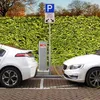Budget 2021: GST tax cut, easy financing, and revising FAME-II — here’s what the EV sector expects
As the country looks towards FM Nirmala Sitharaman and Budget 2021 with high hopes, here are some of the reforms that the EV industry is anticipating.
By now, it has become more evident that the Indian government aims to make India a major hub for electric vehicles. With a total budget of $1.41 billion, the FAME II programme has been deployed over three years from April 1, 2019, to benefit the EV sector.
This push from the administration is estimated to make India one of the largest EV markets in the future. However, there are still major hurdles that need to be addressed. EV manufacturers look towards Finance Minister Nirmala Sitharaman with high hopes.
Here are some of the reforms that the EV industry is anticipating.
Easy financing and policy changes
Firstly, EV manufacturers are hoping for policy changes and easy financing. One of the industry’s main expectations from the budget is to be added to the priority lending sector’s list to boost e-mobility in India. It also hopes that the government will announce other incentives for manufacturers to accelerate local EV production.
To benefit more consumers, the government needs to increase the cap of EVs’ ex-factory price to avail a subsidy from $2,051 to $2,256. The government should also provide clarity about the criteria of vehicles that will be eligible for subsidies as the sale of EVs is allowed without pre-fitted batteries. The industry even hopes that measures will be taken to boost the development of charging infrastructure.
The government needs to include programmes that provide stable support and incentives for electric two-wheeler manufacturers to produce high-quality vehicles. The government must focus on electric two-wheeler mobility rather than cars while developing the charging infrastructure.
Another significant pain point for the EV industry in India is the import of lithium-ion batteries. The lack of lithium resources has pushed the manufacturers to import lithium chemicals from elsewhere.
GST reduction
The industry expects the Union Budget to include a reduction in GST on lithium-ion batteries from 18 percent to five percent. The import duties on lithium cells, which are not available domestically, need to be kept as low as possible to accelerate the lithium-ion battery production domestically.
They also want subsidies to be extended to low-speed electric two-wheelers and reduce the GST on battery swapping. This, in turn, will increase the demand for these environment-friendly vehicles.
Apart from this, the EV industry also wants the government to incentivise private buyers as it would also increase the sale of pure and hybrid EVs.
FAME-II
The government further needs to revise the existing Faster Adoption and Manufacturing of EVs (FAME-II programme) or reintroduce FAME-I. The government can also include the EV sector in its clean air and CSR programmes under the Swachh Bharat Mission to accelerate the adoption of EVs.
The latest budget also needs to contain more information on the production-linked programmes to localise the EV supply chain.
Additionally, along with financing options for EVs, the tax refunds and incentives should be rolled out immediately. The industry also hopes that the budget will address the need for incentives for the retrofitting of vehicles under the FAME-II programme.
Digitisation
The Union Budget needs to support the digitisation of the EV sector’s local technology platforms, including battery swap, and connected vehicle software. To accelerate such measures, the government should develop technology parks for the EV segment like the IT hubs.
It should also provide tax exemptions for the initial five years. Installing more charging stations in the upcoming year can help accelerate EV adoption as well.
Policy support
With respect to segment focus, the move of logistics and public transportation via EVs can be a huge focus area for the Indian government to consider while creating policies in this budget as these are high-volume and high-growth areas with a significant chance of faster EV adoption.
Electric vehicles are quickly gaining market share as state and central governments have provided a policy push coupled with demand incentives.
Investors have also seen the EV market on the brink of a boom, which is evident in their 2020 investments. And, as the Union Budget reading is just around the corner, the EV industry hopes that the government will take notice.
For YourStory's multimedia coverage of Budget 2021, visit YourStory's Budget 2021 page or budget.yourstory.com
Edited by Suman Singh
(Disclaimer: The views and opinions expressed in this article are those of the author and do not necessarily reflect the views of YourStory.)









